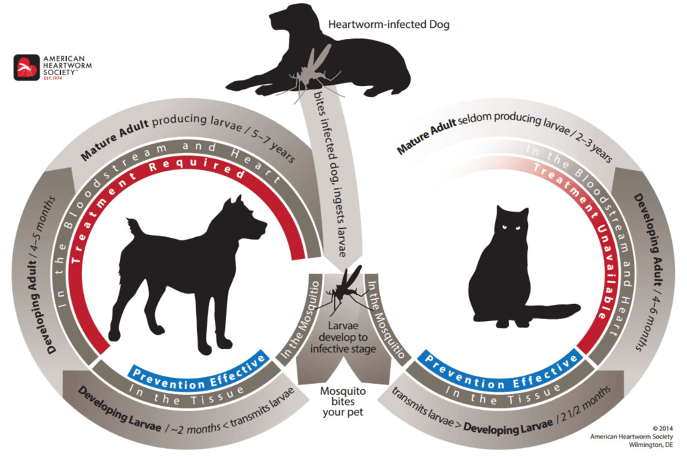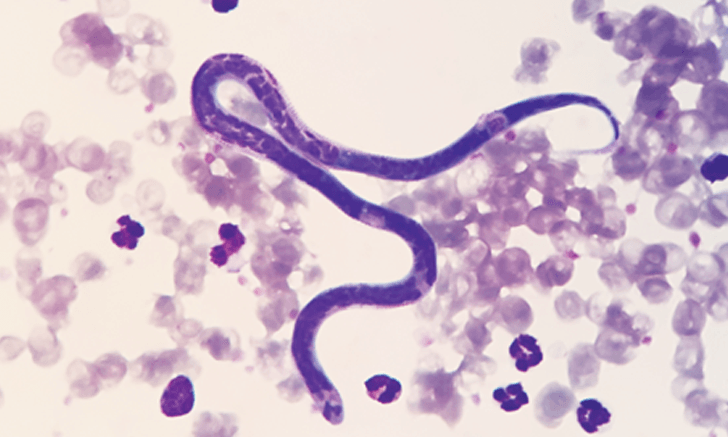Heartworm disease in cats and dogs
Heartworm is a deadly disease caused by a parasitic worm known as Dirofilaria immitis. Interestingly, this infectious disease is not transmitted through close contact like many others, but through mosquitoes! New infections begin when mosquitoes ingests heartworm larvae known as microfilaria from the bloodstream of an infected animal. These larvae then develop into its infective stage in the mosquito prior to entrance into another animal during a blood meal.
These worms then grow into their adult stages and can potentially cause severe debilitating disease such as severe inflammation, cardiac issues and respiratory problems. Once at their mature form, heartworms can live for up to 2 - 3 years in cats and 5 – 7 years in dogs!
Things to look out for:
- Persistent dry cough
- Exercise intolerance
- Difficulty in breathing
- Fatigue
- Decreased appetite
- Weight Loss
- Lethargy
- Swollen belly

Diagnosis
To diagnose a dog with heartworm disease, blood is drawn for antigen testing – this detects heartworm antigens released by female heartworms in the dog’s bloodstream. If the patient is diagnosed with a heartworm infection, starting medical treatment immediately is imperative. Furthermore, ensuring strict cage rest is also important to ensure that the disease process do not progress rapidly.

Treatment
Treatment for heartworm disease is not easy. It involves administration of various medications, given at specific timings. Infected dogs with no or mild signs of heartworm disease generally have a higher chance of survival with the treatment, while dogs who present with severe symptoms typically have a poorer prognosis.
Prevention is better than Treatment
There is a wide array of different products available in the market that will keep your pet safe. These products come in different preparation such as in tablets (i.e. Nexgard Spectra) or in injectables (i.e. Proheart). Some heartworm preventives also contain other ingredients that are effective against a wide range of other bugs such as fleas, ticks, mites and intestinal worms - to name a few. Heartworm preventions are highly effective in dogs and cats, however if there is a lapse in coverage, it is recommended that your pet gets tested immediately.
As prevention is better than cure, have a friendly chat with us about the different products available to keep heartworm at bay!




